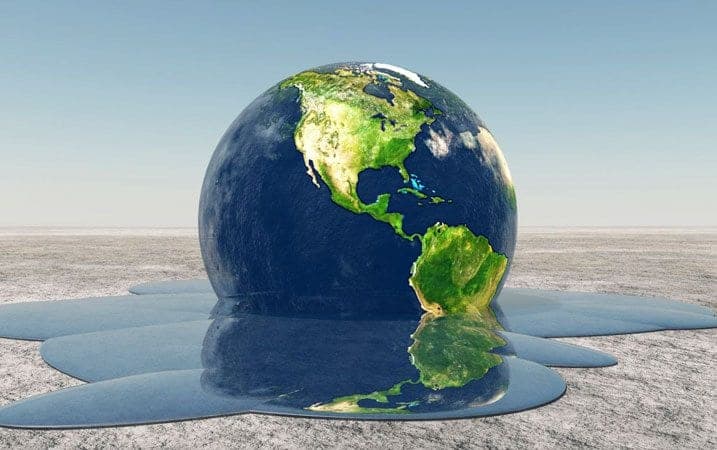ROME— A top Vatican official, who’s spent part of the last year travelling the world to promote Pope Francis’ teaching on the environment, said Monday that he sides with U.S. President Barack Obama on his initiatives to fight climate change.
“Not to call the U.S. on the carpet, but in the past months I’ve spoken in a lot of U.S. universities about Laudato Si’,” said Cardinal Peter Turkson of Ghana, head of the Vatican’s Pontifical Council for Justice and Peace.
Laudato Si’ is the title of an encyclical letter issued by Pope Francis in mid-2015, in which the pontiff identifies the struggle to offset the effects of climate change and other environmental issues as a moral priority.
“Around this time, the U.S. Supreme Court put a stop on the renewable energy projects that the U.S. government had,” Turkson said.
Turkson was referring to a February ruling by the Supreme Court which temporarily blocked the Obama administration’s rules to limit greenhouse gas emissions from power plants.
Reacting to a lawsuit from 29 states, as well as the energy industry, justices blocked the Environmental Protection Agency’s “Clean Power Plan” from going forward while the rule is challenged in court.
“That came to us as a big surprise, [because] we thought that this was going to be the momentum for the realization of those internally decided goals,” Turkson added, speaking to journalists on the side-lines of a Rome conference titled “On Care for Our Common Home: U.S. and Vatican Engagement on Global Issues.”
The cardinal strongly defended the pope’s document, saying that contrary to what some have said, it’s not about “spoiling other people’s business” nor about the pope wanting to create “joblessness.”
Turkson said that Laudato Si’ suggests looking beyond short term solutions that will bring problems in the future, and turning them into a long-term vision.
“If the burning of coal now is going to cause us problems in the future, why don’t we think about modifying that in the interests of the future?” he said. “That basically is the idea of the encyclical.”
Talking about the impact Laudato Si’ has had since it was published, Turkson said there have been been many examples. For instance, he said the document had become the center of an event in the United Nations, which studied the contribution and “moral support” the document could lend to combatting climate change.
He also spoke of an event called “Consciences for Climate Change”, which took place in July of 2015, a month after publication of the encyclical. During that gathering, French president Francoise Holland quoted the document extensively.
An “encyclical” is the most developed form of papal teaching, and Laudato Si’ was the first time a pope dedicated such document entirely to environmental issues. In the 184-page document, Francis unambiguously accepts the scientific consensus that changes in the climate are largely man-made, and also laments a loss of biodiversity and growing scarcities of safe water.
The pontiff is especially strong on the link between environmental problems and poverty, arguing that developing nations will bear the brunt of today’s ecological crisis and that poor people are ill-equipped to adapt to a changing climate.
Speaking about his experience travelling throughout the U.S., visiting universities to talk about the document, Turkson said that even if some are skeptical about man-induced climate change, climate-related disasters are increasingly “making it difficult for people to live wholesome and peaceful lives.”
“To what extent are human beings contributing to that?” Turkson said.
The cardinal also addressed “the many people who dispute this,” answering their qualms using his own experience as an example.
Turkson grew up in a mining town in Ghana, saying he knows the impact surface mining has on the local environment, and arguing that “what you have left is not the same as when the process began.”
“The forest has gone, the topsoil is gone, agriculture is affected, the water board is affected – that’s a drastic change caused by human activity, and this is just one” example, he said.
These for-instances, he said, show how human activity “can induce, worsen or even provoke” climate change.















